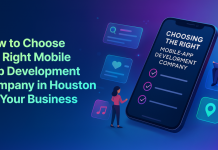AI has been used for a long time in app and website development. But with the recent advancements in AI, App development has quickly evolved. With applications like Chat GPT, where you can describe the app you want to build and the platform can create the code and script, AI is quickly becoming rooted in App development.
AI is a broad branch of computer engineering that creates smart machines and software through machine learning, deep learning, and natural language processing. It helps perform functions and tasks that traditionally needed human interaction to problem-solve and in decision-making. AI learns from experience and trains itself to adjust performance based on input.
It is evident that AI will change how we develop apps and how apps interact. AI revenue is estimated to be at about $126 billion by 2025. On the other hand, revenue from mobile apps will be more than $613 billion by 2025, showing how intertwined these two sectors already are.
Which Areas in App Development will be Most Affected by AI?
As mentioned, AI will change how Apps are built. Better no-code app builders will help individuals with little IT experience create better platforms for their companies, check for bugs, and carry out audits seamlessly. AI features like Natural Language Processing will help improve user experience. Deep learning will be vital in increasing app efficiency. At the same time, machine learning will make automating operations more effective.
AI Chatbot
One of the most problematic areas to improve in App development is the user experience. Even if you have a great product and your app is easy to use, you are bound to have frustrated users, increasing the churn rate.
Support is also an expensive area in app maintenance. In most cases, you will need 24/7 customer support, which can be costly for your company as you always need someone on standby to assist your customers.
AI can eliminate the need for support staff, reducing the company’s expenditure. This will also result in a 24/7 support process without human interference. Through deep learning, your clients can ask your AI support bot follow-up questions to thoroughly understand what they need to do. Through Natural language Processing, your clients can expect well-written and thought-out responses.
The AI chatbot will use pre-existing information from your database, data fed to it by the user to decipher queries and communicate articulate responses. The healthcare, banking, and retail sectors are set to benefit most from AI chat bots.
Speech/Voice Recognition
Alexa and Google assistant quickly gained popularity because of their voice input abilities. Communicating and interacting with an app through speech input is much easier. However, Alexa and Google Assistant are not always efficient, and you may need to come closer to the device, speak more audibly, and repeat the command severally or slowly for it to understand you. Such voice input devices also do not understand particular dialects, accents, or voice pitches, making them difficult to use.
AI Can solve these problems and allow apps to understand voice commands better. Language is no longer a barrier as AI can understand your command in any language you use. This, in turn, can result in a global app instead of a regional one restricted by language and dialect. Such technology can ensure that people with disabilities also use the app, opening a new market for you.
Security
Back-end and user security are areas any app creator fears getting wrong. A lapse in security could mean the leakage of personal information and liabilities by you and your company.
On the back end, AI technology can help identify threats before any damage through its fast data processing abilities. App developers have for a long time been playing catch up with hackers, as bad characters create new techniques all the time. AI can quickly detect a change in pattern and alert you to a security threat, ensuring you are one step ahead of the hackers.
On the User’s side, passwords often present the greatest security risks. It is easy for hackers to get passwords through techniques like phishing. A good solution for this has been using biometric protection such as fingerprints and facial recognition. AI aims to better biometric protection by finetuning it further and converting such data into information that can be analyzed to understand the origins of the security gap.
Personalization
One area that has eluded many app developers is perfecting a personalized app experience without infringing on a user and their rights to data protection. Cookies may help you collect sufficient data, but it is hard to understand user behavior at face value from this data. AI in app development can help enhance search through additional information like images, videos, audio, and the location of landscapes. AI can also help personalize user experience through emotional recognition. It can analyze subtle speech intonations, patterns, and signals to understand your emotional state. In the end, coupling this data with your facial expressions to better understand your mood and emotional state better.
AI is here to stay and promises to revolutionize how we build and use Apps. As a business owner, it is time to embrace this technology and offer your clients a better experience while cutting down on your operation and maintenance costs.






